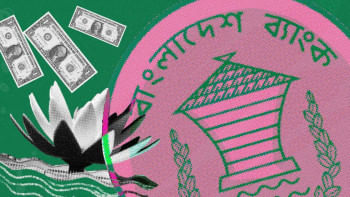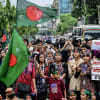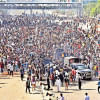S&P downgrades Bangladesh rating amid deadly protests

S&P Global has downgraded Bangladesh's rating amid persistent pressure on the country's external accounts and deadly protests.
The US-based credit ratings agency lowered its long-term sovereign ratings on Bangladesh to B+ from BB-.
External pressure particularly stemmed from the continued decline in foreign exchange reserves. This has occurred despite import compression measures enacted by the central bank and a smaller current account deficit.
"Gross external financing needs, by our measures, now exceed the sum of current account receipts and usable reserves," said S&P.
However, the ratings agency left the outlook stable.
The downgrade comes amid deadly protests over the job quota reform movement that led to the deaths of at least 163 people and massive destruction of government property. The authorities imposed a curfew on July 20 to contain the situation with public and private offices running under relaxed curfew times.
The economic activities are yet to return to normal.
Bangladesh is "currently grappling with widespread student-led protests that have reportedly led to more than 200 deaths", S&P said, citing local news sources.
Bangladesh's "highly concentrated political environment may undermine the predictability of future policy responses".
"The ruling Awami League won a fourth five-year term following the general elections in January 2024, with the main opposition Bangladesh Nationalist Party (BNP) boycotting the poll. There is deep division between the two historically prominent parties."
"The government faces little opposition in parliament, which limits checks and balances. Foreign direct investment has remained persistently low, possibly reflecting the country's evolving institutional settings, infrastructure deficiencies, and bureaucratic inefficiencies."

 For all latest news, follow The Daily Star's Google News channel.
For all latest news, follow The Daily Star's Google News channel. 










Comments